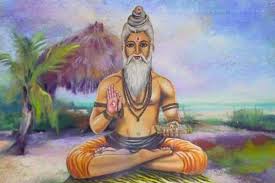BHIKHAN (1480-1573), a medieval Indian saint two of whose hymns are included in the Guru Granth Sahib. There are in fact two saints of that time sharing the same name Bhakta Bhikhan and Bhikhan the Sufi. Bhakta Bhikhan was a devotee in the tradition of Ravidas and Dhanna. His hymns in the Guru Granth Sahib reflect his dedication to the Name of Hari (God) which he describes as "cure for all ills of the world."
Discover the significance of Kirtan Sohila, the revered bedtime prayer from Guru Granth Sahib, featuring hymns by Guru Nanak, Guru Ram Das, and Guru Arjan.
BARBARA SINGH, BABA (1814-1870), second in the hierarchy of the Nirankari sect, was the eldest of the three sons of Baba Dayal, the founder of the sect. He was born at Rawalpindi on 1 Baisakh 1871 Bk / 11 April 1814 and succeeded to his father`s seat on 30 January 1855. From among the creed of religious and social reform preached by his father, he gave his utmost attention to one item marriage by Anand ceremony. He summoned an assembly of his followers and admirers at the Nirankari Darbar at Rawalpindi on 13 March 1855, and married a Sikh couple in the presence of Guru Granth Sahib, without inviting Brahman priests and dispensing with the rite of circumambulations around a fire.
Explore the revered teachings of Guru Har Rai in a newly published manuscript, preserved in Kiratpur, offering invaluable insights into Sikh heritage.
Explore the life of Vasishtha, enlightened sage of Rig Veda, preceptor to Rama, and a revered Brahm-rishi. Learn about his teachings and legacy.
Explore the timeless hymns of Trilochan, a revered Maharashtrian saint poet featured in the Guru Granth Sahib. Dive into his profound spiritual teachings.
CHAUNKI or Chauki, lit. quarter, a four footed wooden platform upon which sat the holy choir to recite the sacred hymns in a gurdwara or at a gathering of the devotees. The term chaunki also refers to a session of kirtan or hymn singing, the number of singers at such sessions commonly being four, nowadays usually three, playing different instruments. Kirtan is a popular form of worship among Sikhs. At all major gurdwaras at least four kirtan chaunkfs are held. At the central shrine, in Amritsar, the Harimandar, kirtan goes on all the time, from 2.45 a.m. to 9.45 p.m.
CHUHAR, BHAI, Bhai Sam. Bhai Lala, all Sethi Khatris, and Bhai Nihalu were good musicians and had facility in expounding the holy hymns. Whenever they sang, discussed or discoursed on the sacred hymns, the sangat, records Bhai Mani Singh in his Sikhari di Bhagat Mala, felt deeply impressed. Guru Arjan appreciated their talent, too, and once spoke to them, "Good deeds are necessary along with a sweet voice.
DHANNA, BHAGAT (b. 1415?), one of the medieval saints whose bani has been incorporated in the Guru Granth Sahib, describes himself in a hymn, in Raga Asa, as an ignorant Jatt and explains how he was attracted to the worship of God by the examples of Namdev (a calicoprinter), Kabir (a weaver), Ravidas (a cobbler) and Sain (a barber). Nabhadas, Bhaktamal, includes Dhanna among the twelve disciples of Ramanand (1299-1410), though it has been questioned if all the twelve did indeed live at the same time. Max Arthur Macauliffe fixes AD 1415 as the year of Dhanna`s birth, but his name nowhere appears in the writings of Kabir (f7. 15th century) or Ravidas (fl. 15th century).
Explore the divine beauty of ghorian hymns in the Guru Granth Sahib, reflecting on marriage and the spiritual journey to unite with God.



